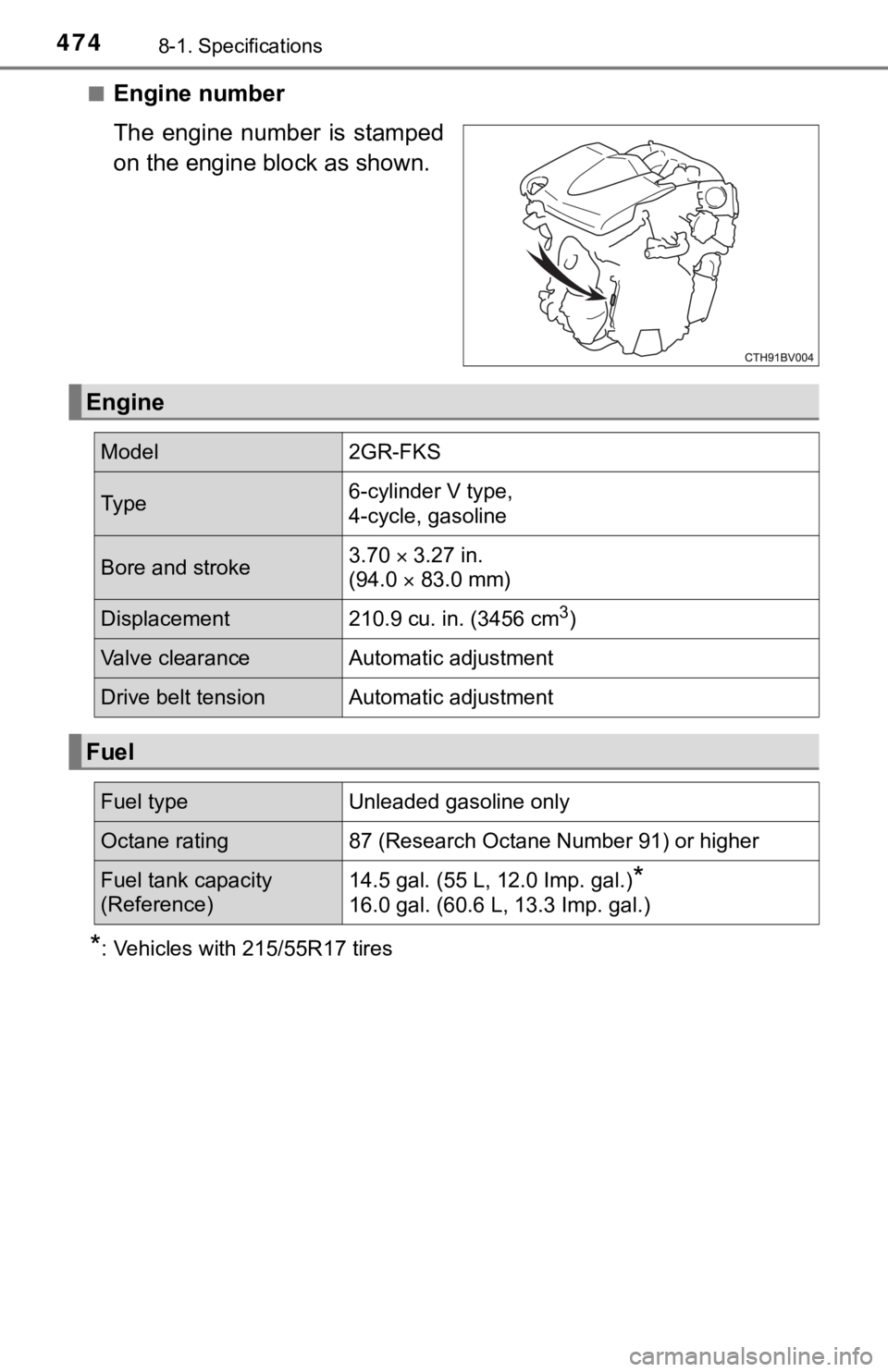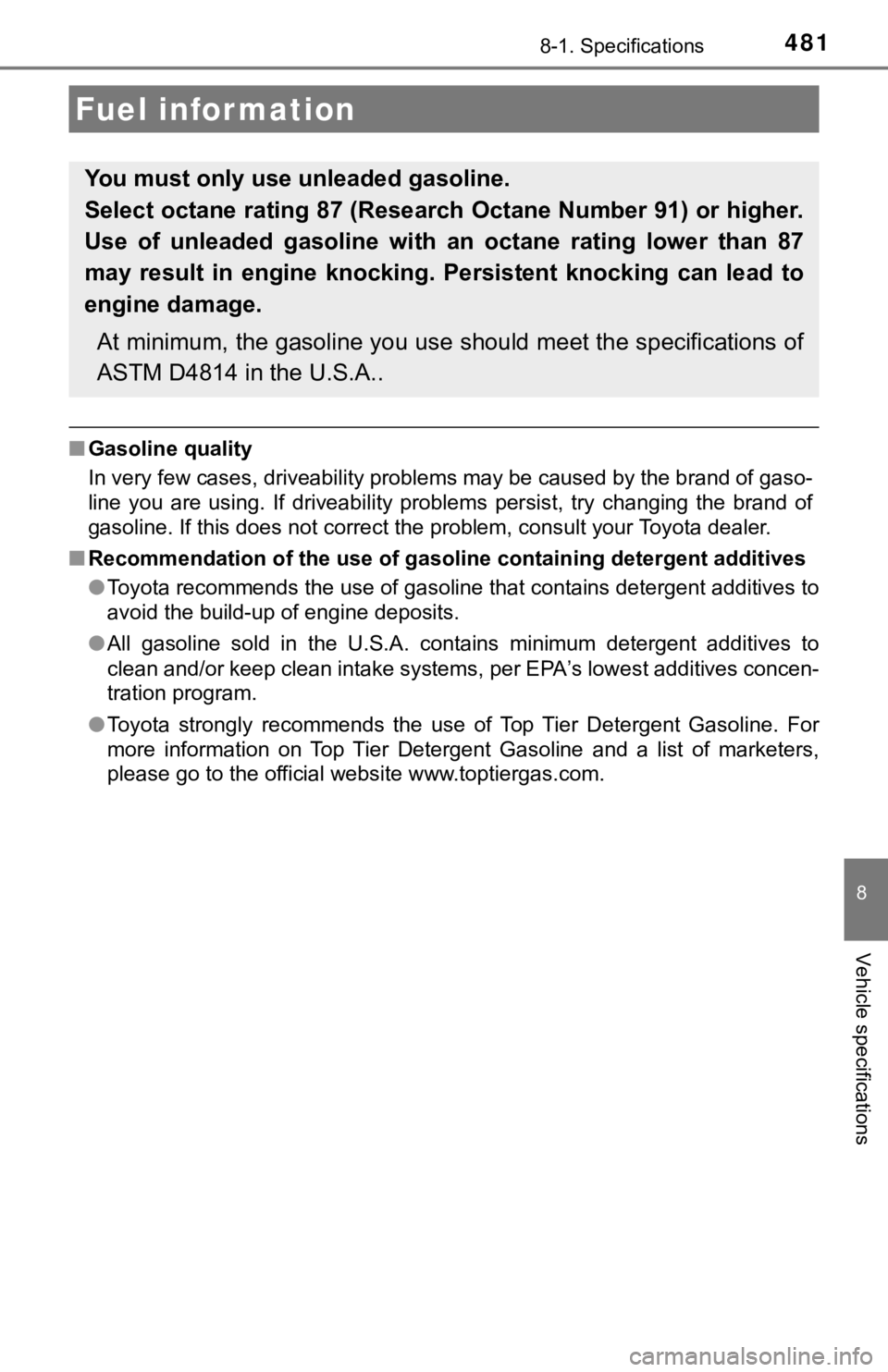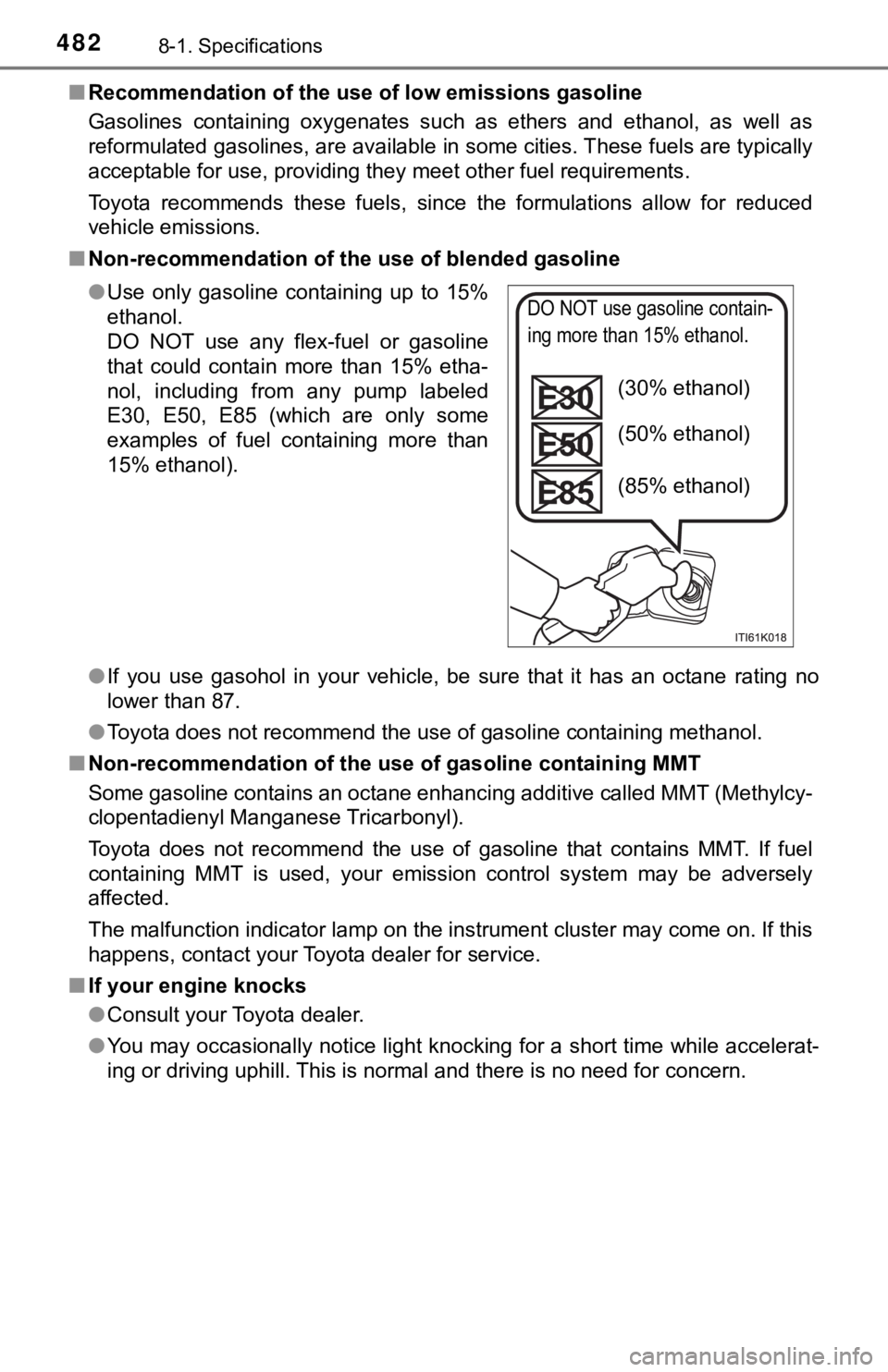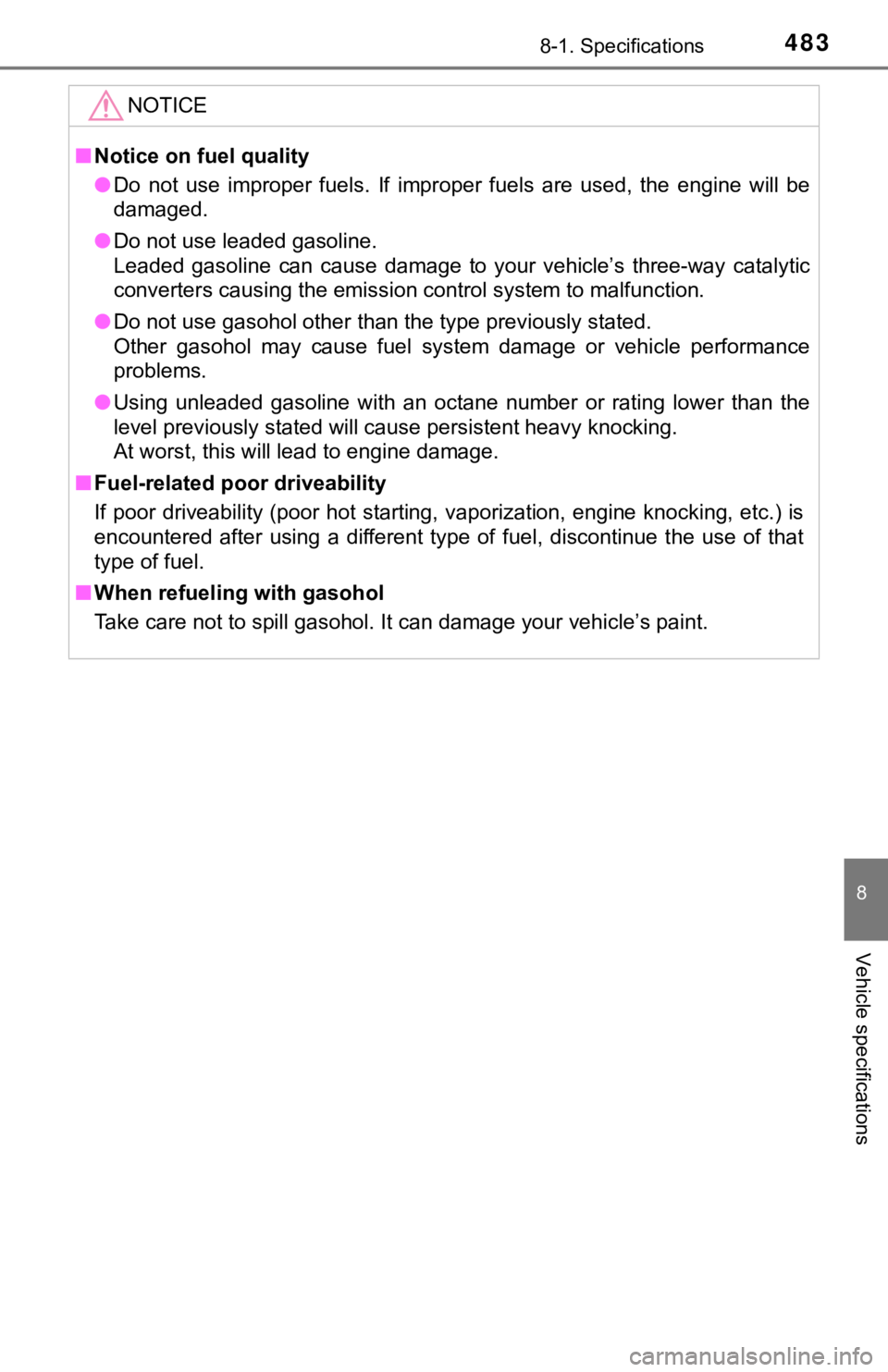octane TOYOTA AVALON 2020 Owners Manual (in English)
[x] Cancel search | Manufacturer: TOYOTA, Model Year: 2020, Model line: AVALON, Model: TOYOTA AVALON 2020Pages: 540, PDF Size: 10.4 MB
Page 474 of 540

4748-1. Specifications
■Engine number
The engine number is stamped
on the engine block as shown.
*: Vehicles with 215/55R17 tires
Engine
Model2GR-FKS
Ty p e6-cylinder V type,
4-cycle, gasoline
Bore and stroke3.70
3.27 in.
(94.0 83.0 mm)
Displacement 210.9 cu. in. (3456 cm3)
Valve clearance Automatic adjustment
Drive belt tension Automatic adjustment
Fuel
Fuel type Unleaded gasoline only
Octane rating87 (Research Octane Number 91) or higher
Fuel tank capacity
(Reference)14.5 gal. (55 L, 12.0 Imp. gal.)*
16.0 gal. (60.6 L, 13.3 Imp. gal.)
Page 481 of 540

4818-1. Specifications
8
Vehicle specifications
■Gasoline quality
In very few cases, driveability problems may be caused by the b rand of gaso-
line you are using. If driveability problems persist, try changing the brand of
gasoline. If this does not correct the problem, consult your To yota dealer.
■ Recommendation of the use of gaso line containing detergent additives
● Toyota recommends the use of gasoline that contains detergent a dditives to
avoid the build-up of engine deposits.
● All gasoline sold in the U.S.A. contains minimum detergent addi tives to
clean and/or keep clean intake systems, per EPA’s lowest additi ves concen-
tration program.
● Toyota strongly recommends the use of Top Tier Detergent Gasoli ne. For
more information on Top Tier Detergent Gasoline and a list of m arketers,
please go to the official website www.toptiergas.com.
Fuel information
You must only use unleaded gasoline.
Select octane rating 87 (Research Octane Number 91) or higher.
Use of unleaded gasoline with an octane rating lower than 87
may result in engine knocking. Persistent knocking can lead to
engine damage.
At minimum, the gasoline you use should meet the specifications of
ASTM D4814 in the U.S.A..
Page 482 of 540

4828-1. Specifications
■Recommendation of the use of low emissions gasoline
Gasolines containing oxygenates such as ethers and ethanol, as well as
reformulated gasolines, are available in some cities. These fue ls are typically
acceptable for use, providing they meet other fuel requirements .
Toyota recommends these fuels, since the formulations allow for reduced
vehicle emissions.
■ Non-recommendation of the use of blended gasoline
●If you use gasohol in your vehicle, be sure that it has an octa ne rating no
lower than 87.
● Toyota does not recommend the use of gasoline containing methan ol.
■ Non-recommendation of the use of gasoline containing MMT
Some gasoline contains an octane enhancing additive called MMT (Methylcy-
clopentadienyl Manganese Tricarbonyl).
Toyota does not recommend the use of gasoline that contains MMT. If fuel
containing MMT is used, your emission control system may be adv ersely
affected.
The malfunction indicator lamp on the instrument cluster may come on. If this
happens, contact your Toyota dealer for service.
■ If your engine knocks
●Consult your Toyota dealer.
● You may occasionally notice light knocking for a short time whi le accelerat-
ing or driving uphill. This is normal and there is no need for concern.
●
Use only gasoline containing up to 15%
ethanol.
DO NOT use any flex-fuel or gasoline
that could contain more than 15% etha-
nol, including from any pump labeled
E30, E50, E85 (which are only some
examples of fuel containing more than
15% ethanol).
DO NOT use gasoline contain-
ing more than 15% ethanol.
(30% ethanol)
(50% ethanol)
(85% ethanol)
Page 483 of 540

4838-1. Specifications
8
Vehicle specifications
NOTICE
■Notice on fuel quality
● Do not use improper fuels. If improper fuels are used, the engi ne will be
damaged.
● Do not use leaded gasoline.
Leaded gasoline can cause damage to your vehicle’s three-way ca talytic
converters causing the emission control system to malfunction.
● Do not use gasohol other than the type previously stated.
Other gasohol may cause fuel system damage or vehicle performan ce
problems.
● Using unleaded gasoline with an octane number or rating lower than the
level previously stated will cause persistent heavy knocking.
At worst, this will lead to engine damage.
■ Fuel-related poor driveability
If poor driveability (poor hot starting, vaporization, engine k nocking, etc.) is
encountered after using a different type of fuel, discontinue the use of that
type of fuel.
■ When refueling with gasohol
Take care not to spill gasohol. It can damage your vehicle’s paint.